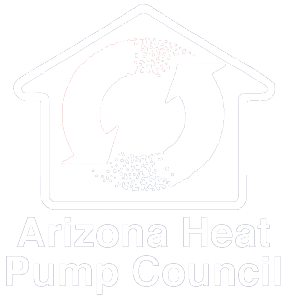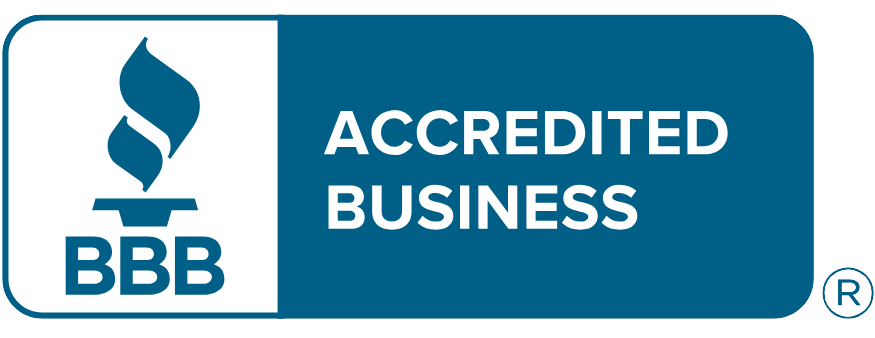In Peoria’s extreme climate, swift and high-quality emergency HVAC repairs are essential. You’ll face risks like health hazards, property damage, and skyrocketing energy bills if you don’t address issues promptly. Rapid response prevents secondary damage and maintains indoor comfort, while quality repairs guarantee long-term system efficiency and safety. Choose a provider offering 24/7 service with experienced technicians for the best results. Don’t settle for quick fixes that may mask underlying problems. Regular maintenance can help prevent emergencies, but when they occur, acting fast with a reliable service is key. Understanding the full scope of emergency HVAC repair importance can save you time, money, and stress.
Key Takeaways
- Peoria’s extreme temperature fluctuations demand rapid HVAC repairs to maintain indoor comfort and safety.
- Quick response prevents secondary damage to HVAC components and reduces overall repair costs.
- Quality repairs address root causes, ensuring long-term system efficiency and preventing repeated breakdowns.
- Experienced technicians available 24/7 can diagnose and fix complex issues promptly, minimizing discomfort and health risks.
- Proper emergency repairs prevent safety hazards like fire risks or carbon monoxide leaks in HVAC systems.
Peoria’s Climate Challenges
Peoria’s climate fluctuates between extreme heat and cold throughout the year, putting significant stress on HVAC systems. You’ll experience scorching summers with temperatures soaring above 90°F and frigid winters plummeting below 20°F. These drastic temperature swings demand a strong and well-maintained HVAC system to guarantee your comfort and safety.
High humidity levels during summer months necessitate efficient humidity control to prevent mold growth and maintain indoor air quality. Your HVAC system plays an essential role in managing moisture levels, protecting your home and health.
To combat these climate challenges, prioritize seasonal maintenance for your HVAC system. Schedule professional inspections before peak seasons to confirm peak performance and energy efficiency. Regular maintenance helps identify potential issues before they escalate into emergencies, saving you time and money.
Be prepared for sudden temperature changes by testing your system regularly. Keep air filters clean and replace them as needed to maintain proper airflow and reduce strain on your HVAC unit. By taking these precautions, you’ll minimize the risk of unexpected breakdowns and confirm your system can handle Peoria’s demanding climate year-round.
Recognizing HVAC Emergencies
Homeowners should be able to identify HVAC emergencies to prevent costly damage and secure their safety. Recognizing warning signs early can help you avoid major system failures and potential health risks. Pay attention to unusual noises, such as grinding, squealing, or banging, which may indicate mechanical issues. Sudden temperature fluctuations or inadequate cooling and heating are also red flags.
Be alert to strange odors, especially burning smells or gas-like odors, which could signal electrical problems or gas leaks. If you notice excessive moisture, condensation, or water pooling around your HVAC unit, it may indicate a refrigerant leak or drainage issues. Unexplained spikes in energy bills often point to system inefficiencies that require immediate attention.
Employ basic diagnostic techniques to assess your HVAC system’s performance. Check airflow from vents, monitor thermostat accuracy, and inspect visible components for signs of wear or damage. If you observe any of these warning signs, don’t hesitate to call for emergency HVAC repair. Quick action can prevent further damage, secure your family’s safety, and potentially save you from more extensive and expensive repairs down the line.
Importance of Rapid Response
Rapid response to HVAC emergencies can make the difference between a minor repair and a major system overhaul. When your HVAC system fails, every minute counts. Quick action can prevent further damage, minimize discomfort, and save you money in the long run.
A fast response time is essential for several reasons:
| Reason | Impact |
| Prevent secondary damage | Protect other components |
| Maintain comfort | Avoid extreme temperatures |
| Reduce energy waste | Lower utility bills |
| Guarantee safety | Prevent hazardous conditions |
Service efficiency is equally important. Skilled technicians who arrive promptly can diagnose issues quickly and implement effective solutions. They’ll have the right tools and parts on hand, reducing downtime and getting your system back online faster.
Remember, HVAC emergencies don’t just affect comfort; they can pose safety risks. Rapid response can address potential hazards like gas leaks or electrical issues before they escalate. It’s not just about convenience; it’s about protecting your home and family.
Don’t hesitate to call for emergency HVAC repair when you notice signs of trouble. The sooner you act, the better your chances of a swift, cost-effective resolution.
Quality Repair vs. Quick Fixes
The temptation to opt for a quick fix can be strong when facing an HVAC emergency, but it is vital to prioritize quality repairs. While a temporary solution might seem appealing, it often leads to recurring issues and potentially hazardous conditions. Quality assurance in HVAC repairs guarantees your system’s safety, efficiency, and longevity.
When you choose a reputable HVAC service, you’re investing in long-term solutions. Skilled technicians will diagnose the root cause of the problem, not just treat the symptoms. They’ll use high-quality parts and follow manufacturer specifications, reducing the risk of future breakdowns. This approach may take slightly longer, but it is important for your safety and comfort.
Quick fixes, on the other hand, can mask underlying issues. They might provide temporary relief, but they often fail to address the fundamental problem. This can lead to repeated service calls, higher energy bills, and even system failure. In worst-case scenarios, improper repairs can create fire hazards or lead to carbon monoxide leaks. By prioritizing quality repairs, you’re not just fixing your HVAC system; you’re safeguarding your home and family.
Choosing the Right Emergency Provider
When selecting an emergency HVAC provider in Peoria, prioritize companies offering 24/7 availability to guarantee assistance regardless of when your system fails. Look for providers with rapid response times, as quick action can prevent further damage and minimize discomfort. Choose a service with experienced technicians on-call, capable of diagnosing and resolving complex HVAC issues efficiently.
24/7 Availability
In the midst of an HVAC emergency, availability becomes a essential factor when selecting a repair provider. You’ll want to choose a company that offers 24/7 service accessibility to guarantee your comfort and safety aren’t compromised, regardless of when issues arise. Look for providers with multiple technicians on call, as this reduces the likelihood of availability issues during peak demand periods.
Consider emergency response times when evaluating potential providers. A reputable company should be able to dispatch a technician within a few hours of your call, even during nights and weekends. Ask about their average response times and how they prioritize emergency calls.
It’s also critical to inquire about their service area coverage. Confirm the provider serves Peoria and surrounding areas to avoid delays caused by long-distance travel. Additionally, check if they maintain a well-stocked inventory of common HVAC parts, as this can notably reduce repair times.
Lastly, verify that the company has a dedicated emergency hotline. This guarantees you can quickly reach a knowledgeable representative who can assess your situation and coordinate the appropriate response, minimizing downtime and potential safety risks.
Rapid Response Times
Speed is paramount when facing an HVAC emergency. When selecting an emergency HVAC repair service in Peoria, you’ll want to prioritize providers with rapid response times. Look for companies that offer 24/7 availability and guarantee arrival within a specific timeframe, typically 1-2 hours.
Efficient emergency preparedness involves researching and saving contact information for reputable HVAC services before a crisis occurs. This proactive approach can save you significant time when you’re in urgent need of assistance. Consider providers that employ advanced response strategies, such as GPS-tracked service vehicles and real-time technician dispatching systems.
You should also inquire about the company’s average response times and ask how they handle peak demand periods. A well-prepared service will have contingency plans to manage high call volumes without sacrificing response speed. Additionally, verify that the technicians arrive fully equipped to diagnose and repair common HVAC issues on the spot, minimizing delays caused by multiple visits or parts procurement. By choosing a provider with consistently rapid response times, you’ll guarantee that your HVAC emergency is addressed promptly, reducing discomfort and potential safety risks in your home or business.
Experienced Technicians On-Call
Knowledge is essential when selecting an emergency HVAC repair provider in Peoria. You’ll want to verify the technicians on-call have certified proficiency to handle your specific HVAC system. Look for providers with a track record of customer satisfaction and a commitment to ongoing training.
When evaluating potential emergency HVAC repair services, consider the following factors:
| Criteria | Importance | Impact |
| Certifications | High | Verifies technical competence |
| Experience | High | Improves problem-solving skills |
| Available 24/7 | Critical | Minimizes downtime |
Experienced technicians can quickly diagnose issues, reducing the time your system is offline. They’re familiar with a wide range of HVAC models and can efficiently implement repairs or temporary solutions to restore comfort and safety to your home or business.
Don’t hesitate to ask about the technicians’ qualifications and ongoing training programs. A reputable provider will gladly share this information, demonstrating their commitment to maintaining a highly skilled workforce. By choosing a service with experienced, certified technicians on-call, you’re investing in your safety and comfort during HVAC emergencies.
Common Emergency HVAC Issues
During emergency HVAC situations, homeowners often encounter a range of common issues that require immediate attention. You might experience thermostat malfunctions, which can cause your system to operate erratically or not at all. Refrigerant leaks can lead to insufficient cooling and potential health hazards. Electrical failures may result in complete system shutdown, while airflow issues can reduce efficiency and comfort.
Compressor problems are particularly serious, often requiring professional intervention due to their complexity. Ductwork damage can cause air leaks, reducing system performance and increasing energy costs. Sensor failures may lead to inaccurate temperature readings and improper system operation. Filter blockages can restrict airflow, causing your system to work harder and potentially overheat.
It’s essential to address these issues promptly to guarantee your safety and comfort. Regular maintenance can help prevent many of these emergencies, but when they do occur, it’s important to have a reliable HVAC professional on call. They can quickly diagnose the problem and implement the necessary repairs, minimizing downtime and potential damage to your system.
Preventative Maintenance Benefits
While addressing emergency HVAC issues is important, preventing them through regular maintenance offers numerous advantages. Preventative maintenance can markedly reduce the likelihood of unexpected breakdowns, ensuring your system operates efficiently year-round. By scheduling routine check-ups, you’ll experience improved air quality, enhanced system performance, and extended equipment lifespan.
Implementing a preventative maintenance plan yields substantial cost savings in the long run. You’ll avoid expensive emergency repairs and benefit from lower energy bills due to optimized system efficiency. Here’s a breakdown of the key benefits:
| Benefit | Short-term Impact | Long-term Impact |
| Improved Air Quality | Reduced allergens | Better respiratory health |
| Enhanced Performance | Consistent temperatures | Increased comfort levels |
| Extended Equipment Life | Fewer unexpected repairs | Delayed replacement costs |
| Energy Efficiency | Lower monthly utility bills | Reduced carbon footprint |
Cost Considerations for Emergency Repairs
When facing emergency HVAC repairs, you’ll need to weigh upfront costs against potential long-term savings. While immediate repairs may seem expensive, they can prevent more costly damage and system failures in the future. If you’re concerned about the sudden expense, investigate financing options offered by reputable HVAC companies to manage the cost of emergency repairs.
Upfront vs. Long-term Costs
Faced with an emergency HVAC repair, you’ll need to weigh the costs of immediate fixes against potential long-term expenses. While upfront costs for emergency repairs may seem steep, they often prevent more severe damage and costly replacements down the line. Consider the age and condition of your system when deciding between a quick fix and a more thorough repair or replacement.
Opting for the cheapest immediate solution might lead to recurring issues and higher cumulative costs. Instead, investing in quality repairs or upgrades can result in long-term savings through improved energy efficiency and reduced maintenance needs. Factor in the potential for energy bill reductions when calculating the true cost of your repair options.
Don’t overlook the safety implications of your choice. A detailed repair or replacement might address hidden issues that could pose risks to your home and family. While it may require a larger initial investment, ensuring your HVAC system is operating safely and efficiently can provide peace of mind and financial benefits in the long run.
Financing Emergency Repairs
Many homeowners find themselves unprepared for the sudden expense of emergency HVAC repairs. When faced with this unexpected financial burden, it’s vital to investigate available financing options to guarantee your family’s comfort and safety without breaking the bank.
Most reputable HVAC companies offer flexible payment plans to help you manage the cost of emergency repairs. These plans often include low or zero-interest financing for a set period, allowing you to spread the expense over several months. Some providers may also offer credit card options specifically designed for home improvement projects.
Before committing to any financing option, carefully review the terms and conditions. Pay close attention to interest rates, repayment periods, and any potential penalties for early payoff. It’s also wise to compare offers from multiple HVAC companies to secure the best deal.
Consider setting up an emergency fund specifically for home repairs to better prepare for future HVAC emergencies. This proactive approach can help you avoid relying on financing options and potentially save money in the long run. Remember, addressing HVAC issues promptly is essential for maintaining a safe and comfortable home environment.
Health Risks of HVAC Failures
HVAC system failures pose significant health risks that shouldn’t be underestimated. When your heating, ventilation, or air conditioning system malfunctions, it can lead to poor indoor air quality and respiratory issues. You’re exposed to increased levels of pollutants, allergens, and potentially harmful microorganisms that can accumulate in stagnant air.
Here’s a breakdown of common health risks associated with HVAC failures:
| Risk Factor | Potential Health Impact | Preventive Measure |
| Mold Growth | Allergies, Asthma | Regular Maintenance |
| Poor Ventilation | Headaches, Fatigue | Proper Air Exchange |
| Temperature Extremes | Heat Stroke, Hypothermia | Prompt Repairs |
| Carbon Monoxide | Poisoning, Death | CO Detectors |
| Dust Accumulation | Respiratory Irritation | Air Filter Replacement |
You’ll notice decreased comfort levels and potentially experience headaches, dizziness, or nausea due to inadequate air circulation. In extreme cases, malfunctioning heating systems can lead to carbon monoxide poisoning, a life-threatening situation. Prolonged exposure to excessive heat or cold can strain your cardiovascular system and exacerbate existing health conditions. To protect your health, it’s essential to address HVAC failures promptly and maintain your system regularly.
Emergency Repair vs. Replacement
When your HVAC system fails, you’ll need to make a quick decision: emergency repair or full replacement? This choice depends on several factors, including your system’s age, repair history, and the severity of the current issue.
Emergency repairs are often quicker and less expensive in the short term. They can get your system running again, providing immediate relief from extreme temperatures. However, consider the repair longevity. If your HVAC is older or has a history of breakdowns, repairs may only be a temporary fix. You might find yourself facing repeated emergencies, which can be costly and inconvenient.
Replacement, while initially more expensive, can offer long-term benefits. A new system will be more energy-efficient, potentially lowering your utility bills. It’ll also come with a warranty, providing peace of mind and protection against future breakdowns. When assessing replacement costs, factor in the potential savings from improved efficiency and reduced repair needs.
Ultimately, your decision should prioritize safety and reliability. If your current system poses any health or safety risks, replacement might be the safest option. Consult with a qualified HVAC professional to assess your specific situation and make an informed decision.
Frequently Asked Questions
How Long Does an Emergency HVAC Repair Typically Take?
You’ll find emergency HVAC repair timeframes vary based on the issue’s complexity. Typically, technicians aim for service efficiency, resolving problems within 2-4 hours. However, more intricate repairs may extend to 8 hours or require multiple visits.
Are Emergency HVAC Repair Services Available 24/7 in Peoria?
Like a guiding light in the night, emergency HVAC repair services are typically available 24/7 in Peoria. You’ll find most reputable companies offer round-the-clock emergency response, ensuring service availability whenever you need it for your safety and comfort.
Can I Attempt Emergency HVAC Repairs Myself?
You shouldn’t attempt emergency HVAC repairs yourself. Without proper training, you risk personal injury and system damage. Focus on identifying common issues and taking safety precautions. Always call a professional for emergency repairs to guarantee your safety.
What Should I Do While Waiting for Emergency HVAC Repair?
While awaiting repair, focus on temporary solutions for maintaining comfort. Use fans, open windows for ventilation, and seal off unused rooms. Stay hydrated, dress appropriately, and avoid using heat-generating appliances to minimize strain on your HVAC system.
Are There Financing Options Available for Unexpected Emergency HVAC Repairs?
You’ll often find financing plans and payment options for unexpected HVAC repairs. Contact your HVAC service provider to inquire about available financing solutions. They may offer installment plans or partnerships with financial institutions to ease the burden of emergency expenses.
Conclusion
When your HVAC system fails, you’re faced with a critical decision. Will you prioritize speed or quality? The answer: both. In Peoria’s challenging climate, rapid, expert emergency repairs are essential for your comfort, health, and wallet. By choosing a reliable provider and maintaining your system, you’ll minimize emergencies. Remember, the true cost of HVAC failure extends beyond repair bills. Isn’t your family’s well-being worth investing in proper emergency HVAC care?






